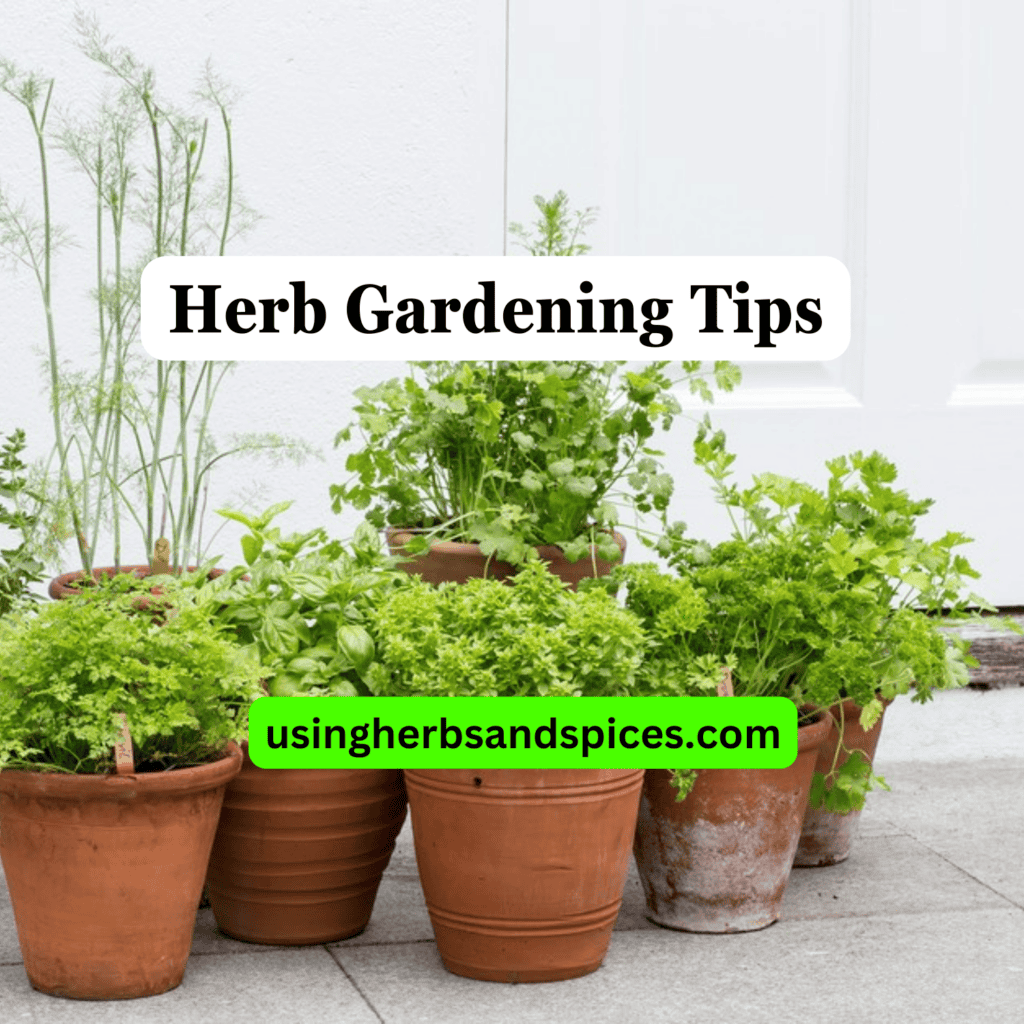Herb gardening is an increasingly popular hobby for those looking to grow plants in a small area. Not only are herbs relatively easy to grow, but they are also versatile and offer a rewarding experience for both beginners and seasoned gardeners. You can grow herbs for cooking, aromatic purposes, ornamental beauty, or even medicinal uses.

Here are the key benefits:
- Choosing Your Herbs
The first step in starting an herb garden is deciding what types of herbs you want to grow. Consider the purpose of your garden:
Culinary Herbs: Common options like basil, rosemary, thyme, and parsley are great for adding flavor to meals.
Aromatic Herbs: Lavender, mint, and lemon balm can be grown for their delightful scents.
Ornamental Herbs: Certain herbs, such as sage or purple basil, are prized for their beauty.
Medicinal Herbs: Plants like chamomile, echinacea, and calendula are often grown for their potential health benefits.
Each type of herb has unique growing requirements, so it’s essential to research the specific needs of the herbs you plan to cultivate. Some grow best indoors, while others thrive outside. Additionally, herbs can be annual, biennial, or perennial, with different planting and care schedules. - Preparing to Plant
If you have limited space, such as in an apartment, you can grow your herb garden in planters or containers that can be placed near a sunny window or hung outside. Make sure your containers have good drainage and are filled with nutrient-rich, fertilized soil to support healthy growth.
When growing herbs from seeds, be sure to carefully read the instructions on the seed packet. Each herb may require different planting depths, water needs, and timing. Starting your herbs indoors is often a good idea, especially if you live in an area with unpredictable weather. - Caring for Seedlings
As your herb seedlings begin to grow, you’ll need to care for them properly. When the seedlings emerge, make sure they receive plenty of sunlight. Most herbs prefer full sun, though some may require partial shade. If you’re growing them indoors, place them near a sunny window, or use grow lights if needed.
To maintain the right humidity levels, spray the area around the seedlings lightly with water. Avoid directly spraying the delicate plants, as they can easily be damaged at this stage. Once the seedlings have grown sturdier, make sure they have enough space between them. Trim back leaves that grow too close to other plants to ensure that each herb has room to absorb nutrients and grow to its full potential. - Transplanting Herbs Outdoors
If you plan to move your herbs outdoors, you’ll need to gradually prepare them for the temperature change. Start by placing the pots outside for short periods of time, increasing their exposure to the outdoor environment over several days. This process, known as hardening off, helps prevent shock when the plants are finally transplanted into outdoor soil.
Make sure the outdoor location has well-drained soil and plenty of sunlight. Most herbs will thrive with six to eight hours of sunlight per day, though the specific requirements may vary depending on the variety. - Maintaining Your Herb Garden
One of the great things about herb gardening is that herbs are generally low-maintenance and do not attract many pests. Regularly water your plants, but be careful not to overwater, as herbs don’t like soggy soil. If necessary, use natural repellents or companion planting techniques to keep pests at bay.
Trim your herbs regularly to encourage bushier growth. This also helps prevent overcrowding and ensures that each plant receives sufficient nutrients. You can use the trimmings in your cooking or dry them for later use. - Enjoying the Benefits
Once your herbs have matured, you can enjoy the fruits of your labor. Whether you’re using fresh basil to make a flavorful pesto or harvesting lavender for homemade sachets, an herb garden offers many practical uses. The best part is that, with proper care, your herbs can continue to provide you with fresh ingredients or delightful fragrances throughout the growing season.
Conclusion
Herb gardening is a perfect hobby for gardeners of all levels and offers a satisfying way to enjoy fresh herbs, whether for culinary, ornamental, or medicinal use. With a bit of planning and care, you can grow a flourishing herb garden regardless of your living conditions, making it an accessible and rewarding pastime for anyone.
